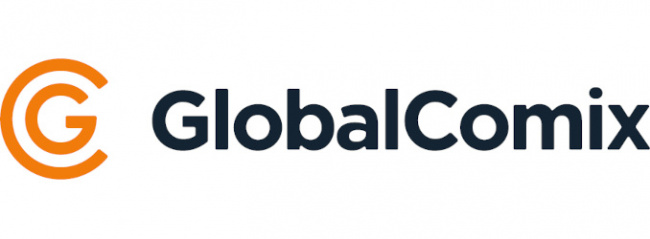For more than a decade, the once-feared digital comics space was the most stable and boring part of the business, with neither the best- nor worst-case scenarios of its impact on the industry fully materializing despite some interesting efforts. Then Amazon decided comiXology, whose biggest problems were usually caused by Amazon’s own policies, needed fixing. Cue sinister music.
While the folks at Amazon may on some level judge the operation a success, the patient seems to have died (see "Bloodbath at comiXology"). That is very sad for the people who worked there tirelessly on behalf of both the medium and the business of comics, and did lots of good. But it also presents a once-in-a-generation opportunity for new companies to gain traction in the space.
Think Global, Act Digital. One of the contenders is GlobalComix, a startup that had been gestating since the mid-teens but only burst onto the market in 2020, and has slowly been gaining steam. Today the company announced that the size of their library nearly doubled, from 12.5k to 22.7k, since summer 2022, as well as a 4x growth in monthly readership, a near-doubling of publishers and creatives using the platform (220+ by year end), and a 500% increase in signup conversions.
Below the topline metrics, company founder/CEO Christopher Carter says the most encouraging sign is how much readers are engaging with the material. "Over three quarters of publishing parties on the site are being read in some way each month," he said. "We’ve seen that increase even as we’ve added new material."
Global Comix, which operates on a subscription model, aspires to be a platform where readers can quickly discover new content from individual creators as well as domestic and international publishers. Current publishing partners include Top Cow, Valiant, Storm King, Papercutz and Source Point Press, the "usual suspects" who take a flier on most new distribution platforms, but Carter says he’s been getting inquiries from others, especially in light of recent events at comiXology.
He also says, true to the company’s name, Global Comix is working with international partners in Europe, Asia and elsewhere, pointing to site features that allow publishers to geolock content to specific regions to comply with licensing restrictions. Last month’s demise of Europe Comics might also open up some space in this narrow lane.
Top of the Funnel. Carter says he doesn’t buy the common preconception that digital sales come at the expense of physical comics and brick and mortar retail, a myth that was busted a few years ago when digital and physical markets both grew in tandem.
"Digital has the lowest barrier and the widest reach," said Carter. "In marketing terms, it’s ‘top of the funnel.’ That is, it can bring more people into IP, stories, and universes. Our role is in getting as many people into the stories as possible. Directly as a result, there’s a benefit for bookstores and retailers, by having more people aware of and interested in the longer tail rather than just the top handful."
At the same time, Carter thinks digital has the potential to grow beyond the 10-15% of the market that seems to be recent non-pandemic norm. "People’s approach to digital has been a little misguided, seeing it as an alternative to print," said Carter. "Digital was set aside because it didn’t make a lot of money. That’s not how people should see it."
It’s the metrics, stupid! Like the current digital platform of choice, WEBTOON, Global Comix takes advantage of digital media’s ability to measure all aspects of user behavior on its site to gain insights into what is popular and why. Unlike WEBTOON, Global Comix says it is completely transparent in making those metrics available to creators and publishers (see "Top Comic on WEBTOON Won’t Return for a New Season").
"If people are making comics as a business, then they need to make smart business decisions," said Carter. "It’s on us to provide people with the data to make those smart decisions. I come from a web analytics background. It is important for us to give performance metrics on marketing, like email blasts, conversions and so on, to track and understand how that impacts ROI. What does $500 get you? Creators need hard numbers. We can help these businesses stay operationally sound.”
And speaking of WEBTOON, Carter says Global Comix currently hosts work in both traditional page layout and vertically-scrolling formats, recognizing that some readers and creators prefer one over the other. As Global Comix expands from web to mobile and tablet app this year, they recognize the value of presenting material in different form factors.
"When people read single pages one by one on mobile devices, they spend more time reading a 28-page book than if it’s laid out top to bottom, but there’s a lower retention rate overall," said Carter. "When you go to tablet, desktop or laptop, traditional format comics in single or double-page layout have the same retention rate as top to bottom. Right now, there’s no good place to read comics in both formats except for Global Comix."
More action in the digital space? The decade-long dominance of comiXology in the digital comics space eventually extinguished the prospects of most competitors, from the would-be innovator Madefire to the subscription-based Comic Blitz. Even with their fate in limbo, there isn’t much room in the market with DC, Marvel, Dark Horse and Viz all operating their own digital comics apps and WEBTOON hoovering up the up-and-coming talent.
Nevertheless, companies like Global Comix, plus Mangamo, Azuki and other manga-oriented newbies, see an opening. The basic value propositions of digital – convenient access to a wide selection of work, especially for people who don’t have a local comics shop nearby; no issues of titles going out of stock or getting delayed in shipping; no need to store back issues; easy ways to discover new titles; no printing and distribution costs – all still apply, and retailers and publishers now know there’s nothing to fear in terms of digital cannibalizing book sales.
Whether anyone can breathe new life into this market, including the still technically active comiXology, remains to be seen. It’s nice to see that people who love comics are still thinking about it, and willing to take chances to improve the market.
The opinions expressed in this column are solely those of the writer, and do not necessarily reflect the views of the editorial staff of ICv2.com.
Rob Salkowitz (@robsalk) is the author of Comic-Con and the Business of Pop Culture.

Column by Rob Salkowitz
Posted by Rob Salkowitz on January 31, 2023 @ 5:49 pm CT





